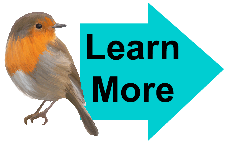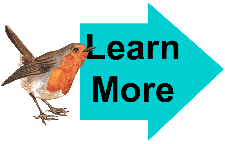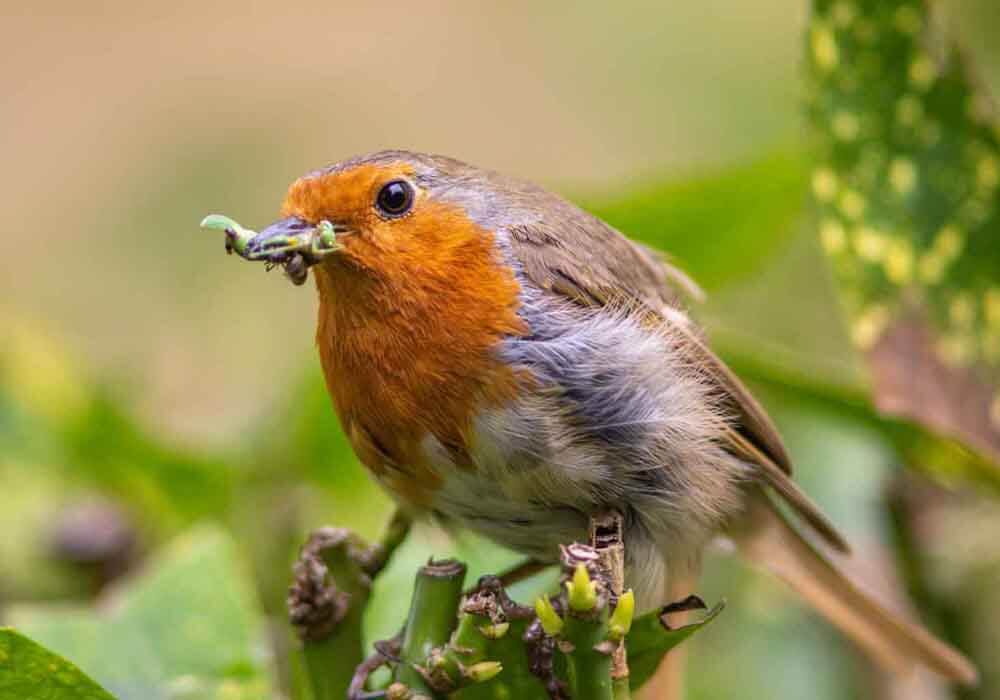What Should You Not Feed a Robin?
The American Robin (Turdus migratorius), known for its whimsical whistle, is a ground eater. Its diet consists of fruits and insects as diverse as an ice cream sundae buffet. A general rule of thumb is that you should not need a robin any food they wouldn’t generally eat in the wild to ensure you provide them with the most beneficial nutrients. But specifically, what should you not feed a Robin?
You should not feed a robin bird seed or fruits with large seeds, shells, or low seed-to-pulp ratios. Also, avoid feeding robins cooked seeds, rotting fruit, and foods with caffeine and other toxins. However, feeding robins should be avoided unless there is a natural food shortage.
Read on if you would like to fluff up on details about what you should not feed a robin and what foods you could provide that are both nutritious and delicious.

You Should Not Feed Robins Bird Seed
Contrary to popular belief, you should not feed a robin bird seed. Bird seeds are too big and have a hard outer shell that the robin’s beak is not equipped to crack. Often robins will not even be able to swallow larger seeds properly and will eventually regurgitate them. So try sticking to softer, smaller seeds and only offer them raw.
You Should Not Feed a Robin Food They Wouldn’t Forage
Providing robins with delicious and nutritious meals is critical to help them breed, build nests, and migrate to their destinations. Feed them fruits and insects that they eat naturally in the wild, and be sure to avoid fruits that have rotted.
Best Edible Fruit Species
Robins’ diets predominantly consist of sugary and lipid-rich fruits such as fruits in the rose family, which make up the bulk of the robin’s diet in the winter, summer, and fall. This family includes:
- Almonds
- Cherries
- Apples
- Pears
- Raspberries
- Strawberries
- Plums
- Cherries
- Peaches
- Nectarines
- Apricots
- Blackberries
- Dewberries
There are a lot of rumors circulating on the internet about cyanide in apple seeds being poisonous to birds. Yet, Prego Deliance Sanctuary claims that seeds do not have enough cyanide to be toxic. Furthermore, birds will eat apples in the wild, thus the apple seed coat isn’t broken until after digestion, assuring that cyanide isn’t released in their stomachs.
A second favorite fruit family that robins adore are those in the sumac family, such as cashews. Fruits in the grapevine and dogwood families are the third most common fruit foraged by robins. The trees and shrubs in this family also serve as ideal habitats.
Best Edible Insect Species
Robins are ground eaters that have thrived in American suburbs, as lawns are ideal environments to find the insects that are crucial for their diet in the springtime when it’s breeding season.
Here are the species most commonly foraged by robins:
- Beetles, especially the Ground beetle and the Snout beetle
- Caterpillars
- Earthworms
You Should not Feed a Robin Food With Pesticides or Herbicides
Often the fruits we eat have been sprayed with pesticides and herbicides, which are toxic to all bird species. Thus, to avoid harming any robins visiting your property, it is crucial to wash any fruits purchased from the grocery thoroughly before offering them.
You Should not Feed a Robin Caffeine
While many foods are not particularly beneficial to robins, such as bread or bananas, they will not be poisonous or harmful unless consumed in large quantities. However, anything with caffeine, including coffee, soda, and tea, should be avoided.
Also, avoid chocolate containing theobromine. This chemical increases motor activity and heartbeat and leads to high body temperature, seizures, dehydration, and death in birds at even small doses.

The life cycle of a Robin is a fascinating thing to follow. So we wrote a helpful Robin Lifecycle Facts article that covers everything you need to know from egg to adulthood.
To Feed or Not to Feed Robins
Generally, it may be best not to feed wild birds unless it is a challenging growing season. Leaving out food and water for robins in a drought can offer them extra help to get through their seasonal migration.
Cons of Feeding Robins
- Robins can develop a reliance on humans for food if they are hand-fed to the point of becoming dependent.
- Feeding robins can change their behavior around humans, making them less fearful, which could be a problem if they come across the wrong human.
- Feeding robins with a bird feeder can lead to diseases such as bacterial infections if the feeder is shared among many bird species.
Pros of Feeding Robins
- Feeding robins can lead to strong bonds with the humans they visit if you want to become besties with your birdies.
- Feeding robins can help them with their migration during a difficult season and can be crucial for getting through another brutal winter.
Should You Use a Bird Feeder To Feed Robins?
While robins can use bird feeders, this may be a rare occurrence. Since they are ground foragers, the food often provided in feeders, such as sunflower seeds, is not typically what they eat in the wild. It is best to use open-top feeders or, better yet, spread some worms on your lawn.
How To Attract Robins to Your Property
If you don’t see many robins around but would like to, there are many ways you can increase the desirability of your property.
- Have a water source, as robins require a lot of water, and this can be crucial to their survival, especially during a drought.
- Try planting more trees and shrubs, which serve as wonderful hiding places from predators, places to mate, build nests, and often natural food sources if in the dogwood and sumac families.
- Leave at least a little bit of lawn space so that robins are easily able to find the insects they love, such as earthworms.

Who doesn't want more Robins in their yard?? This helpful article of mine enlightens on How To Attract Robins To Your Garden Or Yard.
What Should You Not Feed A Robin?
...Final Thoughts
If you want to keep your feathery friends happy, try feeding them food they’d usually go for anyway (particularly in the rose, sumac, dogwood, and grapevine families) and insects (particularly beetles, earthworms, and caterpillars). You should not feed a robin food they wouldn’t eat in the wild, as it would not provide them with the proper nutrition, and be sure to especially stay away from caffeine and fruit covered in pesticides and herbicides.
Back To the TOP Of This What Should You Not Feed A Robin?
Page

About the Author...
Richard Worden, a dedicated bird lover for over 20 years, I love to share my in-depth knowledge and passion for birds. Read more About Me and my expertise in this field.
- We Know Birds HOME ›
- Robin Facts and Information ›
- What Should You Not Feed a Robin?



